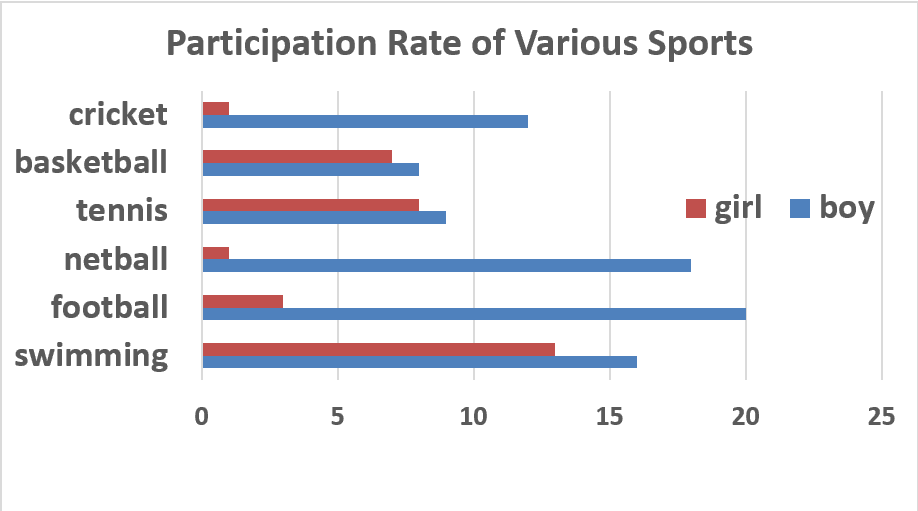GRE作文不计入总分这一点是许多考生忽视作文备考的主要理由,然而许多文科学校本身就对大家的写作能力有一定要求并以GRE作文得分为参考。下面小编就和大家分享GRE写作申请文科专业请关注作文成绩,希望能够帮助到大家,来欣赏一下吧。
GRE写作申请文科专业请关注作文成绩
GRE作文分数价值分析
许多人可能都觉得,作文独立计分不算入总分,可能其分数重要性并不是太高。这种想法其实是存在很大错误的,原因主要有两点:
1. 文科院校看重GRE作文成绩
众所周知,GRE考试作为一门研究生阶段入学的综合能力测试,其考试成绩可以用来申请全美各大学校的大部分研究生专业和项目。理科项目一般不需要作文得分,更看重的是GRE总分和GRE数学部分的成绩。而文科项目除了总分和语文部分成绩外,对于作文也往往会提出专门的分数要求,在这一点上越是优秀的学校越是明显。而假如考生想要申请的是排名靠前,在TOP20以内的顶尖文科名校,那么GRE作文至少也需要考出4分以上的成绩才能过关。根据官方发布的最新数据显示,2016年中国考生的GRE作文平均成绩仅为3分,因此大家想要获得优秀文科院校的青睐,就需要在作文方面获得超过大部分考生的平均水准的成绩。
2. 作文成绩是录取重要参考指标
同时,由于目前许多顶级名校的申请人数过多,招生官在初步筛选申请者时,往往会采取先根据GRE得分一刀切的方式,把一定分数线以下的考生直接排除。而在剩下的考生中,哪怕你的GRE总分超过别人不少,但如果作文分数偏低,那么你的被录取可能性就会降低。可以说,在GRE总分处于同一水平的情况下,考生GRE作文得分高低将成为衡量考生水平的重要参考指标。
GRE写作高效提分建议分享
因此,GRE考生如果申请的是文科类院校专业,那么作文成绩就必须要进行提升,而提分的具体要点可以归纳为以下四个方面:
1. 整体结构
文章的整体结构框架是一篇作文好坏的最重要标准。一般来说,一篇标准的GRE高分作文,按照开头,结尾加上中间三个段落的五段式写法是比较常见的。因此,考生对于一篇文章的写作,至少要列出3个分论点,确保中间三段言之有物,同时开头结尾也需要发挥出各自相应的引导和总结作用。
2. 逻辑论证
GRE作文有两篇,而无论是立论文ISSUE还是驳论文ARGUMENT,其本质都属于议论文,因此让文章显得有说服力就成为了关键所在。无论是让自己的论点能够站得住脚,还是让对方的观点显得错误百出,都需要考生通过逻辑论证来得以实现。因此,逻辑论证的合理性、对观点挖掘的深度,以及分论点之间的的连贯性,都考生需要在写作中体现出来以支撑逻辑论证。
3. 遣词造句
一篇好作文自然离不开词句上的运用。合理正确没有语法错误只能算是达标,想要让GRE作文得到4分以上的评价,考生就需要在达标以上进一步进行遣词造句的优化运用。句式使用上需要多样化,避免简单句的连续出现,但也不能过度堆砌长难句而让文章显得累赘。词汇运用上不能重复使用相同词汇,要体现出一定的变化展现词汇量,但也要确保所用词汇的正确表达,不能为了追求新颖而滥用生僻词汇,也需要避免词汇间错误搭配的问题。
4. 字数篇幅
虽然GRE考试对于作文字数篇幅从来没有提出过明确要求,但根据官方公布的各类高分范文来看,一般来说字数在400-600字是最佳范围。这是因为篇幅过短的文章,容易给考官留下考生写作能力不足,无法表达出自己想法的印象,但篇幅太长同样会给人留下啰嗦累赘的感觉。因此把文章的篇幅字数控制在400-600字是最为合适的做法。
GRE写作高分范文:技术与学习的矛盾
GRE写作题目:
Although innovations such as video,computers,and the Internet seem to offer schools improved methods for instructing students,these technologies all too often distract from real learning.
尽管诸如电视、电脑和互联网这样的发明似乎给学校教育提供了进步的手段,但是所有这些技术往往也是在偏离真正的学习。
GRE写作题库范文:
Nowadays there is a growing concern about the role that innovations have played in the field of learning. While most people think that innovations benefit learning process in various ways,different opinions arise that these technology advancements actually distract students from real learning. On balance,according to my personal observation,whether innovations can be beneficial or detrimental to real learning depends on the students and the teachers,not on these innovations themselves.
To begin with,technological innovations do help teaching and learning in various ways.With the aid of these technologies,the process of teaching and learning can be shorter and easier than before. For instance,if a student want certain published papers of an academic discipline,he/she may look through considerable catalogs to find the ones he/she needs. However,with the help of Internet innovation,at present most of these papers are published online. Consequently,to find certain paper the procedure is much easier and shorter,the students just type the key words and other information of the paper,and then the system will search the database,and the papers are there waiting for them. As this new approach can save a lot of time for the students,he/she could have more time reading the papers and absorbing the knowledge rather than checking and looking for the papers that could be a waste of his/her time. This example aptly illustrates how technology advancement benefited the students and their learning process.
Secondly,while innovations can help learning in various ways,it is more important that the central role of the pursuit for knowledge and wisdoms are maintained. What real matters is not the approach but the purpose of learning. In India,where modern technologies are less applied to the learning process than in the US and other developed countries,still a lot of distinguished students achieved their academic goal with their hard work and desires to knowledge. In the US,where the software engineering students are given the most advanced facilities and apparatus for their learning and research,however,it is wildly accepted that they are far less outstanding compared to the Indian students of software,who may share computers in groups. From this comparison we can see that the real and core push of learning is the desire for knowledge,not the help of innovations.
In addition,if not guided properly,the technology advancement might inhibit learning.In other words,innovation can distract the students from real learning than helping them. It is obvious that a computer can help students of science to calculate mathematical equations but can also be used for recreation such as net surfing or computer games. It is highly possible that these students can spend more time and energy on recreations rather than learning when using a computer. Thus,learning is inhibited. Under this circumstance,guidance and restrictions are needed to ensure the right use of innovations for learning,or the consequence may be on the contrary to the students and teachers' desire.
GRE写作高分范文:新创意
GRE写作题目:
Truly innovative ideas do not arise from groups of people, but from individuals.When groups try to be creative, the members force each other to compromise and, as a result, creative ideas tend to be weakened and made more conventional. Most original ideas arise from individuals working alone.
真正有创意的想法并非来自于群体而是来自于个人。当群体试图创新的时候,它的成员之间会被迫相互妥协,结果就是新想法趋于弱化而更接近于传统。大部分新想法都是来自于独立工作的个人。
GRE写作正文:
I agree with the speaker on that truly innovative ideas arise from individuals.Nevertheless, it is unfair to claim unilaterally that the groups tend to weaken creative ideas without thinking of their positive effects on the ideas; it is equally important for groups to examine, modify, or even reject the ideas.
First of all, truly innovative ideas are destined to arise from individuals in that inter-personal thinking process is so far impossible. This is to say, when we sit still and have a cluster of phenomena, theories, statistics and so forth of a certain issue in our mind, we are thinking it over yet with no assistance at all. After all it is impossible for one to intrude into other's mind. Following this principle, innovative ideas spark off during the process of meditation, and they are the produced by one's own effort. It is equally possible, however, for people to be inspired by each other, yet this is by no means assistance in thinking. Clues, hints, inspirations are to remind people of things ignored or taken for granted, but have nothing to do with the process of thinking, that is, to sort out the whole vision and draw conclusion. In one word, innovative ideas arise from meditation, which is solely limited within one body, one brain. Therefore innovative ideas are always the product of individual's work.
Nevertheless, it does not suggest that innovative ideas then have nothing to do with group work, and actually it is just the opposite. When a novel thought is brought up, it is of great importance to fully evaluate its validity, feasibility, and consequences if carried out. This point need no further illustration if we think of a father who resolutely stops his 6-year-old son from playing matches. The kid might have intended to try something new, driven by an innovative idea, yet the whole house might have caught fire also since the boy is incapable of dealing with accidents. This is the same case in academic fields. In a chemistry lab for example, a novel route design of synthesizing a new compound is never carried out without further evaluation. Practical conditions such as equipments, reagents, and economic efficiency, namely yield per cost, are always taken into consideration and sometimes restrict the application of those ideas.
This is to say, innovation is usually good but not always practicable. This claim is fully demonstrated in the political field. Governors of all levels must take holistic views of the situation and make balanced decision in order to avoid mistakes; innovative ideas alone cannot justify their practicability and goodwill to others. For instance, when we look back, the development of plastic industry has resulted in great loss in the global ecosystem. Thus we see the disastrous consequences of carrying out such innovative yet premature ideas.
Hence, it is necessary for the groups to assess, remedy, and conclude the value and use of innovative ideas. All innovative ideas should be brought to discussions. With the clash of skeptical attitude of others to the advocating behavior of the thinker, fallacies made in a haste can be easily found and eliminated, which rectifies, sometimes supplements the idea. I don't agree with the speaker on his/her judgment of group work as compromising, weakening and conventionalizing innovation. Group work promotes those justified and useful innovative ideas and rejects those invalid, sometimes dangerous ones, as we see the case between father and son, in a chemistry lab, in all nations around the world. Only after the group censorship can the innovative ideas be carried out and benefit people, and this is the time when its innovativeness is fully appreciated.
In conclusion, I concede that most original ideas arise from individuals, yet I believe the group effort on these ideas should never be downplayed. It is the group that judge,reject or develop these ideas; this process is equally important with the innovative thinking.
GRE相关文章:
★ GRE写作:高分技巧
★ GRE写作:写作论据的技巧
★ 新gre填空正确率如何提高呢
★ 组织主题夏令营活动策划方案2020
★ 我也曾是一棵无人知道的小草
GRE写作申请文科专业请关注作文成绩
上一篇:GRE写作中折射出的美国文化
下一篇:GRE高频作文其实没那么好用





